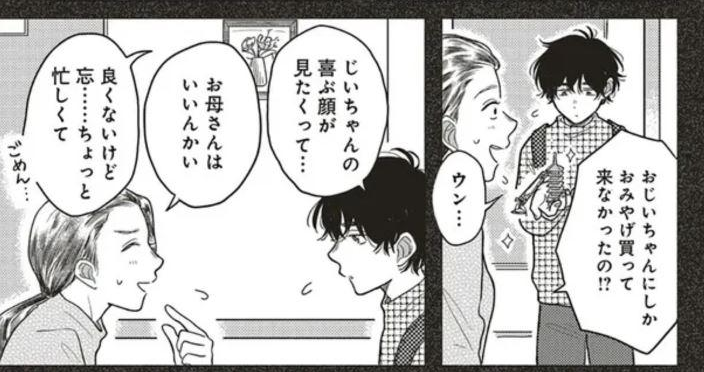Your guess was good, it roughly means "What about mom?". The mother's "いいんかい" is not exactly an honest question like others have suggested.
〜んかい with the right intonation, which you can't hear on manga pages unfortunately, is used to add sarcasm to the expression before it. So お母さんはいいんかい literally means "Are you okay not giving one to me?", but if you account for the sarcasm, it becomes "And your mom's just fine?" (="You only thought of grandpa?"). She's more reproaching him than actually asking a question, though she's not angry, as you can see by her facial expression.
〜んかい probably makes more sense when you hear it in the wild: https://www.youtube.com/watch?v=2gRe4sLbpFw&t=742s
Transcript:
おお〜
35! (="35 stacks [of the dodging buff on my character]!")
*enemy hits him anyway*
当たるんかい! (="Aaand he hits me.")
As you can hear, the person isn't mad; it's something more like sarcastically expressed surprise. The dodge chance in the game was only 35%, but the discrepancy between the speaker's surprise at reaching 35 and then getting hit anyway is what makes it funny. As a side-note, as others have said, the expression indeed comes from いいのかい/当たるのかい. Contracting the の to an ん is done intentionally in these cases to make it sound funnier. There are instances where いいのかい/いいんかい is a real question, but the intonation is different and not as flat -- and in the manga, the context would be different (the missing question mark and the sweat drop on the mom's face provide a hint, but it's hard to read without listening experience).


放っておいてかまわない。どうでもよい。in デジタル大辞泉, perhaps?